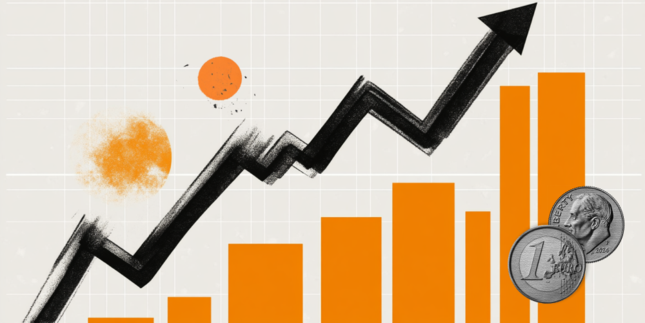- USD/CAD could appreciate further due to the hawkish policy shift by the US Federal Reserve.
- The latest FOMC Meeting Minutes showed that Fed policymakers expressed concern about inflation and the impact of President-elect Trump’s policies.
- The commodity-linked CAD struggles due to lower crude Oil prices.
USD/CAD edges lower after registering gains in the previous two sessions, trading around 1.4370 during the Asian hours on Thursday. However, the USD/CAD pair faced challenges as the US Dollar (USD) appreciated due to increased hawkish sentiment surrounding the Federal Reserve’s (Fed) policy outlook in 2025.
The Federal Open Market Committee (FOMC) Minutes for the December policy meeting showed that Federal Reserve’s (Fed) policymakers expressed concern about inflation and the impact that President-elect Donald Trump’s policies could have.
Fed officials indicated they would be moving more slowly on rate reductions because of the uncertainty. Fed officials penciled the expected cuts in 2025 to two from four in the previous estimate at September’s meeting.
The US Dollar Index (DXY), which measures the US Dollar’s (USD) performance against six major currencies, holds its position near 109.00 as long-term US bond yields continue climbing on heavy supply. The 10-year stand at 4.66%, while the 30-year approached 4.90% at the time of writing.
Traders are evaluating the implications of Canadian Prime Minister (PM) Justin Trudeau's resignation after nine years in office, amid escalating tariff threats, political instability, and declining approval ratings, which could pave the way for snap elections. Trudeau announced on Monday that he would step down as the leader of Canada’s ruling Liberal Party once a successor is chosen.
Additionally, the commodity-linked CAD faces challenges against the US Dollar due to weakening crude Oil prices, given that Canada is the largest Oil exporter to the United States (US). West Texas Intermediate (WTI) Oil price extends its losses for the second successive day, trading around $72.70 per barrel at the time of writing.
Traders analyze the latest weekly report from the US Energy Information Administration (EIA). The EIA report indicated a 0.959 million-barrel drop in US crude Oil stockpiles, marking the seventh consecutive decrease. The market expectations were a 0.250 million-barrel decline for the week ending January 3, against the previous decline of 1.178 million barrels.
Canadian Dollar FAQs
The key factors driving the Canadian Dollar (CAD) are the level of interest rates set by the Bank of Canada (BoC), the price of Oil, Canada’s largest export, the health of its economy, inflation and the Trade Balance, which is the difference between the value of Canada’s exports versus its imports. Other factors include market sentiment – whether investors are taking on more risky assets (risk-on) or seeking safe-havens (risk-off) – with risk-on being CAD-positive. As its largest trading partner, the health of the US economy is also a key factor influencing the Canadian Dollar.
The Bank of Canada (BoC) has a significant influence on the Canadian Dollar by setting the level of interest rates that banks can lend to one another. This influences the level of interest rates for everyone. The main goal of the BoC is to maintain inflation at 1-3% by adjusting interest rates up or down. Relatively higher interest rates tend to be positive for the CAD. The Bank of Canada can also use quantitative easing and tightening to influence credit conditions, with the former CAD-negative and the latter CAD-positive.
The price of Oil is a key factor impacting the value of the Canadian Dollar. Petroleum is Canada’s biggest export, so Oil price tends to have an immediate impact on the CAD value. Generally, if Oil price rises CAD also goes up, as aggregate demand for the currency increases. The opposite is the case if the price of Oil falls. Higher Oil prices also tend to result in a greater likelihood of a positive Trade Balance, which is also supportive of the CAD.
While inflation had always traditionally been thought of as a negative factor for a currency since it lowers the value of money, the opposite has actually been the case in modern times with the relaxation of cross-border capital controls. Higher inflation tends to lead central banks to put up interest rates which attracts more capital inflows from global investors seeking a lucrative place to keep their money. This increases demand for the local currency, which in Canada’s case is the Canadian Dollar.
Macroeconomic data releases gauge the health of the economy and can have an impact on the Canadian Dollar. Indicators such as GDP, Manufacturing and Services PMIs, employment, and consumer sentiment surveys can all influence the direction of the CAD. A strong economy is good for the Canadian Dollar. Not only does it attract more foreign investment but it may encourage the Bank of Canada to put up interest rates, leading to a stronger currency. If economic data is weak, however, the CAD is likely to fall.
Information on these pages contains forward-looking statements that involve risks and uncertainties. Markets and instruments profiled on this page are for informational purposes only and should not in any way come across as a recommendation to buy or sell in these assets. You should do your own thorough research before making any investment decisions. FXStreet does not in any way guarantee that this information is free from mistakes, errors, or material misstatements. It also does not guarantee that this information is of a timely nature. Investing in Open Markets involves a great deal of risk, including the loss of all or a portion of your investment, as well as emotional distress. All risks, losses and costs associated with investing, including total loss of principal, are your responsibility. The views and opinions expressed in this article are those of the authors and do not necessarily reflect the official policy or position of FXStreet nor its advertisers. The author will not be held responsible for information that is found at the end of links posted on this page.
If not otherwise explicitly mentioned in the body of the article, at the time of writing, the author has no position in any stock mentioned in this article and no business relationship with any company mentioned. The author has not received compensation for writing this article, other than from FXStreet.
FXStreet and the author do not provide personalized recommendations. The author makes no representations as to the accuracy, completeness, or suitability of this information. FXStreet and the author will not be liable for any errors, omissions or any losses, injuries or damages arising from this information and its display or use. Errors and omissions excepted.
The author and FXStreet are not registered investment advisors and nothing in this article is intended to be investment advice.
Recommended content
Editors’ Picks

EUR/USD consolidates gains below 1.1400 on weaker US Dollar
EUR/USD consolidates its recovery gains below 1.1400 in early Europe on Monday. Upbeat risk sentiment on Trump's tairff concession news fails to lift the US Dollar, supporting the pair. US-China trade headlines will continue to dominate ahead of Fedspeak.

GBP/USD climbs above 1.3150 as USD sellers refuse to give up
GBP/USD preserves its bullish momentum and trades above 1.3150 in the European session on Monday. The sustained US Dollar weakness suggests that the path of least resistance for the pair remains to the upside. US-China trade updates remain in focus.

Gold price eases from record high amid positive risk tone; bullish bias remains
Gold price refreshes record high as US-China trade war underpins safe-haven demand. A positive risk tone caps gains for the precious metal amid a slightly overbought daily RSI. US recession fears, Fed rate cut bets, and a bearish USD should support the XAU/USD pair.

TRUMP token leads $906 million in unlocks this week with over $330 million release
According to Tokenomist, 15 altcoins will unlock more than $5 million each in the next 7 days. Wu Blockchain data shows that the total unlocked value exceeds $906 million, of which the TRUMP token will unlock more than $330 million.

Is a recession looming?
Wall Street skyrockets after Trump announces tariff delay. But gains remain limited as Trade War with China continues. Recession odds have eased, but investors remain fearful. The worst may not be over, deeper market wounds still possible.

The Best brokers to trade EUR/USD
SPONSORED Discover the top brokers for trading EUR/USD in 2025. Our list features brokers with competitive spreads, fast execution, and powerful platforms. Whether you're a beginner or an expert, find the right partner to navigate the dynamic Forex market.



